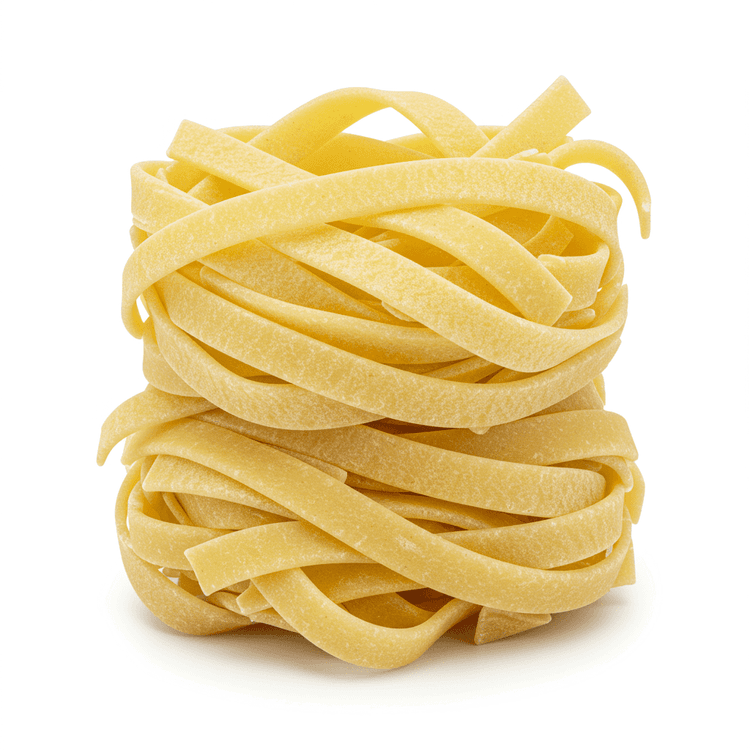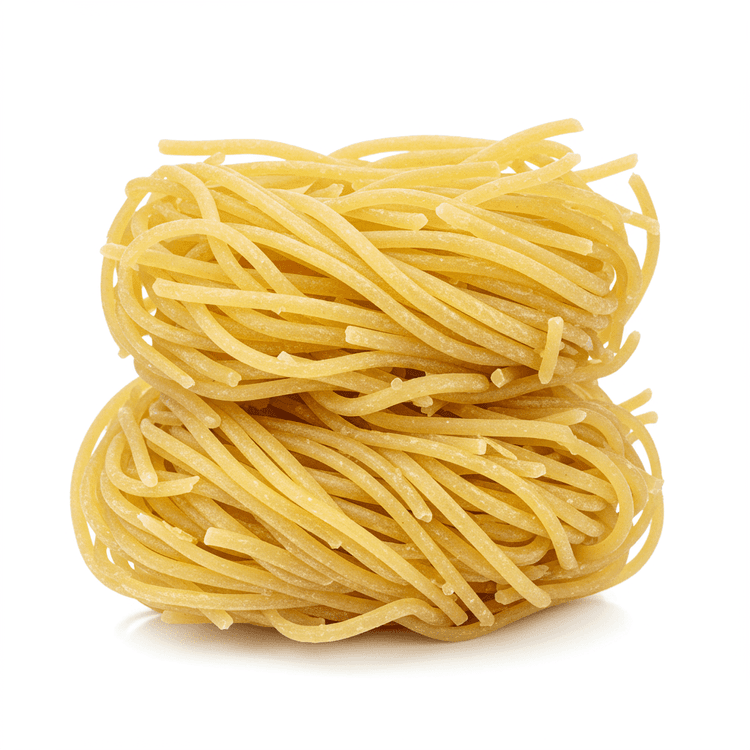
Noodle
Noodles are a versatile and widely loved ingredient made from unleavened dough, typically crafted from wheat, rice, or other grains. They come in various shapes, sizes, and textures, ranging from thin and delicate vermicelli to thick and chewy udon. Noodles are known for their ability to absorb flavors from sauces, broths, and seasonings, making them a staple in cuisines worldwide, including Asian, Italian, and Middle Eastern dishes. Their smooth, slurpable texture and neutral taste make them a perfect base for countless recipes, whether stir-fried, boiled, or baked.
Common Uses
- Used as the base for stir-fried dishes like Pad Thai or Chow Mein, where they absorb savory sauces and pair well with vegetables and proteins.
- Incorporated into soups such as ramen, pho, or chicken noodle soup, providing a hearty and comforting texture.
- Served cold in salads, such as soba noodle salad or pasta salad, often tossed with fresh vegetables and tangy dressings.
- Baked into casseroles like lasagna or noodle kugel, where they add structure and soak up creamy sauces.
- Used in quick, simple dishes like buttered noodles or garlic sesame noodles for a fast and satisfying meal.
- Featured in fusion recipes, such as noodle tacos or noodle-stuffed spring rolls, showcasing their adaptability across cuisines.
Health Benefits
- Noodles are a versatile carbohydrate source, providing energy for daily activities and meals.
- They pair well with a variety of vegetables, proteins, and sauces, making them a staple in balanced meals.
- Whole-grain or fortified noodles can offer added fiber, vitamins, and minerals for improved nutrition.
- Gluten-free noodle options, such as rice or quinoa noodles, cater to those with dietary restrictions or preferences.
- Noodles are quick to cook, making them a convenient choice for busy home cooks.
- They are a global favorite, used in cuisines like Italian, Chinese, Japanese, and Thai, offering diverse flavor profiles.
Substitutes
Chefadora AI is here.
Experience smarter, stress-free cooking.
Storage Tips
Store dried noodles in a cool, dry place, such as a pantry, in their original packaging or an airtight container to prevent moisture exposure. Fresh noodles should be refrigerated and used within a few days, or they can be frozen for longer storage. For cooked noodles, keep them in an airtight container in the refrigerator and consume within 3-5 days. Avoid leaving noodles at room temperature for extended periods to maintain freshness and safety.
Marnirni-apinthi Building, Lot Fourteen,
North Terrace, Adelaide, South Australia, 5000
Australia

